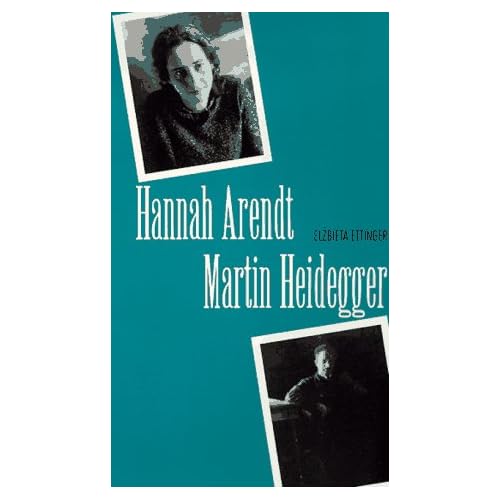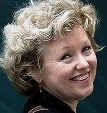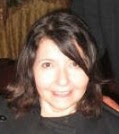
Kathleen B. Jones
A few months ago I spent some time in the archives of Elzbieta Ettinger, author of Hannah Arendt and Martin Heidegger, a book about the intimate relationship between Arendt, a Jewish woman who write about totalitarianism and the Holocaust, and Heidegger, who had once been her teacher and who later became a member of the Nazi party. When it was published, Ettinger’s book caused a scandal in the world of Arendt scholars and set off a debate almost as heated as the affair itself had created when it first became publicly known. How could Arendt have become involved with such a man? More to the point, how could she have rekindled a friendship with him long after the war had ended?
Since I have been working on a memoir (Diving for Pearls: A Thinking Journey with Hannah Arendt) that tracks Arendt’s influence in my own life and thinking, taking up, among other subjects, the meaning this affair had in Arendt’s life, and what it has made me think about my own life, I was familiar with, and critical of, Ettinger’s interpretation of the event. I also knew that Ettinger had intended to write a fuller biography of Arendt. But, for various reasons, she had separated out the Arendt/Heidegger story, publishing it in a short book. She never completed the longer biography. So when I learned of the availability of Ettinger’s archives I wondered whether anything else she might have discovered in her research would prove valuable for the book on which I was still working.
It turns out that the trip I made this past fall to the Schlesinger Library of Harvard University, where the Ettinger archives are housed, was both a boon and a burden. What I uncovered in the archives is invaluable to my work. Interviews, letters, and other materials Ettinger gathered from those who knew Arendt will help me craft a more fully realized portrait of the person Hannah Arendt, who assumes the role of interlocutor in my memoir. But such bounty also proves a burden.
A few months earlier, thinking I was near the end of the revision process, I had determined to pursue self-publishing the manuscript in its then current form. But the wealth of materials I have just added to my ever-expanding research files has forced me to confront the difficult question of how these new documents might reshape my manuscript.
Part of the joy of writing is what you discover about what you really want to say in the process of revision. Searching for exactly the right phrase and precisely the correct shape for a paragraph you begin to uncover what you have been trying to say all along. My immersion of the Ettinger archives has brought me face to face with this process in the work of another. Reading through several drafts of her unpublished work, and comparing these drafts with the research materials she used to create her work, I could literally see the author’s formation of her subject, watch her confront her resistance to an interpretation of her subject at odds with her own, and discover the places where she resolved to draw her own conclusions.
So, I am taking a deep breath and diving back into my manuscript again, convinced that the changes I will make will add depth to my story without fundamentally altering its shape. And since the story I am trying to tell is about the thinking relationship I have had for nearly thirty years now with Hannah Arendt, a woman long dead but one who has become even more alive to me now as a provocative, yet irksome, companion, whose life and work continue to make me think and rethink, write and revise my own, revising my manuscript one more time seems fitting. I do hope, though, it will be the last!
For more about my work visit my web site.












0 comments:
Post a Comment